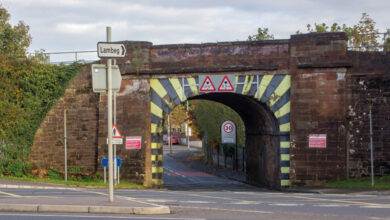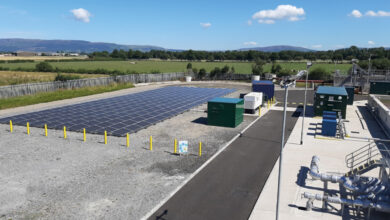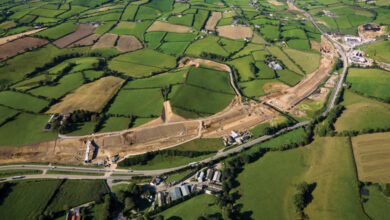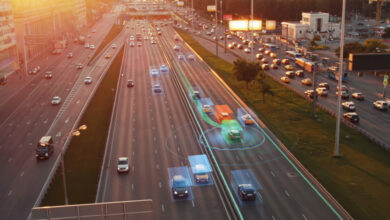A resource we can’t afford to waste
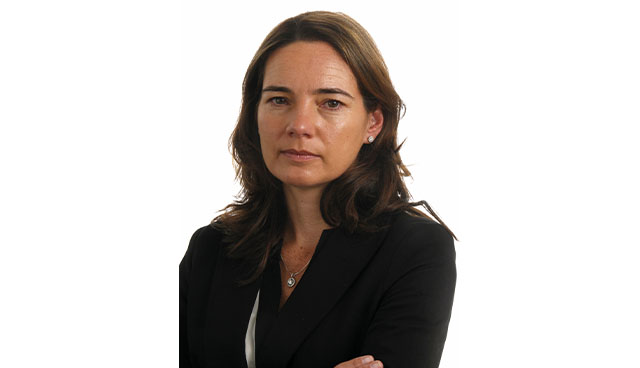
Affordable and sustainable waste infrastructure is key to delivering net zero, writes Jackie Keaney, Commercial Director, Indaver (Ireland and UK).
The importance of self-sufficiency has come into sharp focus recently as the energy crisis exposes how vulnerable we are to global energy markets. At the same time, we are facing a climate change crisis which requires a rapid decarbonisation of our economy.
The UK Government and Northern Ireland Assembly have committed to delivering ‘net zero’ by 2050. We must therefore urgently adopt policies and deliver infrastructure which supports this target, and which ensures robust security of energy supply during the transition.
Affordable and sustainable waste infrastructure is key to delivering net zero and should be viewed as water infrastructure is, an essential pre-requisite to sustainable economic development. It ensures self-sufficiency and maximises our waste’s value locally instead of exporting that value overseas due to the lack of such infrastructure.
The strategic need for waste infrastructure has long been recognised in central and local government waste management strategies and other policies. New climate change and circular economy targets only strengthen that need, as do the latest waste trends which suggest we are on target for over 1.1 million tonnes of household waste generated this year – an all-time high. Circular economy targets which place a 10 per cent maximum cap on landfill and set an ambitious 65 per cent recycling target by 2035 mean we can’t continue to landfill our black bin waste.
Yet approximately a quarter of our waste still ends up in landfill at an estimated annual cost to ratepayers of £30 million. Furthermore, it is conservatively estimated that local councils spend between £18 million and £20 million per annum exporting waste much of which fuels Energy from Waste (EfW) facilities abroad.
Relying on export markets is increasingly risky and expensive due to increasing import taxes being levied and growing transport costs, never mind the sustainability, environmental and reputational concerns this practice raises.
The need for new waste infrastructure has been reinforced in the latest NI Investment Strategy. It states: “Too much of our waste is exported each year to become someone else’s opportunity to recycle into higher-value material, generate energy; or unfortunately in some cases, to become someone else’s disposal problem…we will need to invest in and develop a more coherent, robust and resilient waste management system for the whole of the region.”
While a welcome restatement of longstanding policy objectives these words need to be backed up by action. The proposed arc21 residual waste treatment project to serve the needs of six Northern Ireland councils and its 1.1 million ratepayers, is one such critical action that needs progressed urgently.
The integrated infrastructure has the potential to increase recycling by up to 10 per cent by extracting valuable materials from black bin waste and create energy from the remaining non-recyclable waste. It will support net zero targets by the reduction of approximately 57,500 tonnes CO2 equivalent per annum compared to sending waste to landfill.
The project will directly contribute to Northern Ireland renewable energy targets and bolster our security of energy supply, complementing intermittent renewables when the wind doesn’t blow. It will generate enough electricity to power 30,000 homes, unlocking the energy contained within our indigenous waste locally, rather than exporting that benefit overseas. This ends the current irrational situation where Northern Ireland waste is being exported to generate power abroad while at the same time, we continue to import fossil fuels to meet local energy demands.
EfW technologies provide the lowest carbon solution for black bin waste and generate indigenous, low carbon electricity and heat which can support other industries. Indaver are already exploring additional decarbonisation benefits such as hydrogen production and district heating schemes that the project can unlock, further enhancing its climate change contribution.
We cannot continue to bury or export our waste problem and should instead view it as a resource we can’t afford to waste.

Find out more at: www.becon.co.uk


